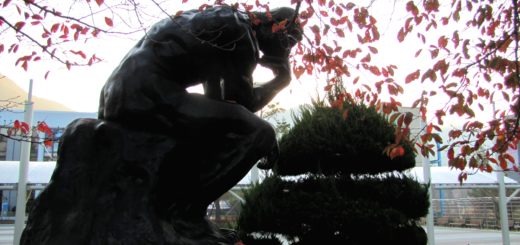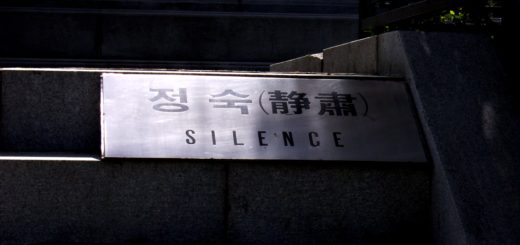Two Observations on End-Stage Modernity
What moderns crave.– We look for emergencies — literally, for emerging problems. They give us respite from the stable emptiness that results from having exhausted last month’s emergency. Modern humans are ever-resourceful in finding emergencies to satisfy their need for some new crisis that absolutely demands attention right now. Not action, mind you, but merely attention. It is not that we moderns want to overcome or improve anything, or even to put ourselves out in the least. It is only that we need to be distracted in such a manner as to be able to persuade ourselves that we are not looking for mere distractions, but rather attending to unavoidable realities. “If only this emergency had not arisen,” we tell ourselves, “I would be able to focus on other things,” though after a lifetime of such rationalization we can barely recall what those other things might have been. We live our lives in the condition of a sick man who is just well enough to appreciate the artificial break from responsibility that his illness affords him — except that we never let go of this condition. Thus, we perpetually avoid the ultimate human responsibility of looking at ourselves and our lives honestly and severely, by telling ourselves we cannot afford the time or energy for such things right now, given the ongoing emergency to which we must attend, where attendance means just what it means in the case of any time-killing entertainment: sitting passively in the audience until we are told the show is over and it is time to go home.
Logically speaking, a never-ending emergency is not an emergency at all. But who said modern man was logical? On the contrary, his consistent and hardnosed illogic is his most indispensable weapon in the war against human nature, i.e., against himself.
Slave morality.– The great business tycoon. A man whose slavishness to material wealth prods him to depths of pandering and flattery towards his fellow human beings that would, in a world not defined by envy and cowardice, immediately be recognized as evidence of smallness of soul and a lack of basic self-respect. The man who would “do anything for a buck.” He is useful in various ways, but only to the extent that we, his customers and exploiters, remember that his extreme eagerness to satisfy our whims for material comfort indicate a basic spiritual deformity, or at least inferiority. That is, like his psychological kin, the morally wayward but peculiarly talented entertainer class, his services may be fruitfully employed by a society, but only so long as the common men remember that such people, though practically beneficial, are, judged on proper standards, the very opposite of admirable. They are essentially highly ambitious sycophants.
Is it any wonder, then, that many such men, having attained extreme levels of wealth through this humiliating self-exposure and self-debasement, increasingly desire to use that wealth to gain political influence, and to assert broad forms of practical control over the lives (the education, activities, privacy, social attitudes) of those before whom they have so demeaned themselves, i.e., their fellow citizens? Unable to admit responsibility for the miserable state of their own souls, they reflexively transform their belittlement and shame into tyrannical power lust directed against the apparent sources of that shame, namely their customers. The businessman as paternalistic social engineer and public power broker embodies the vengefulness of the slave devoured by envy and hatred for his master. The success of this transformation, historically speaking, may be measured by the degree to which this class of men, reduced to spiritual smallness by their outsized greed and vanity, are now almost universally admired and feared as great leaders, exemplars, tyrants, heroes, masterminds, popular idols, demi-gods.
They tell us what to do, and we do it. They tell us whom to vote for, and we vote. They tell us what to love and hate, and we desire and despise for them like clapping seals. They tell us what is true or false, what our rights are, what duties we owe to them as our indispensable benefactors, and we acquiesce in all these things. After all, to disobey or doubt them would be to disrespect our betters, would it not? We must therefore (so we tell ourselves) fight our instinct to envy these great men, and bow before their superiority.
To envy our spiritually slavish panderers and flatterers. Such is the fate of late modern man. This is the new “slave morality” for our time.



